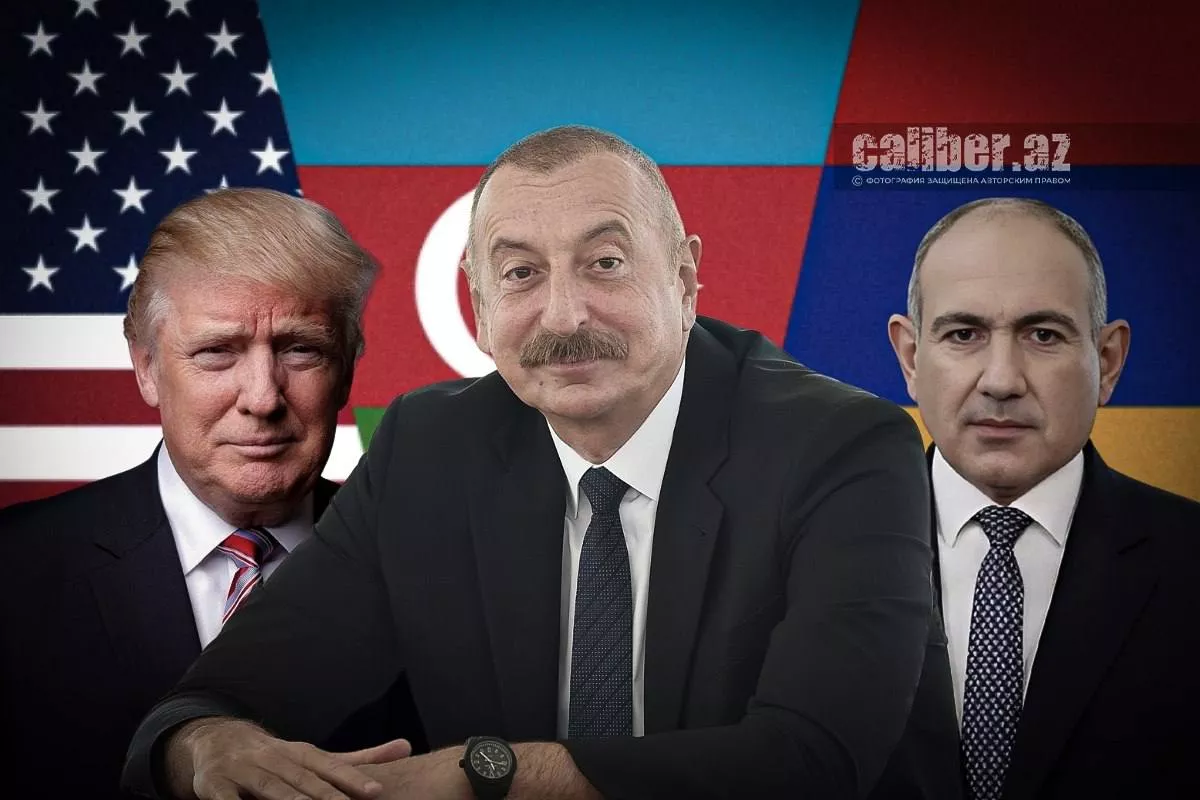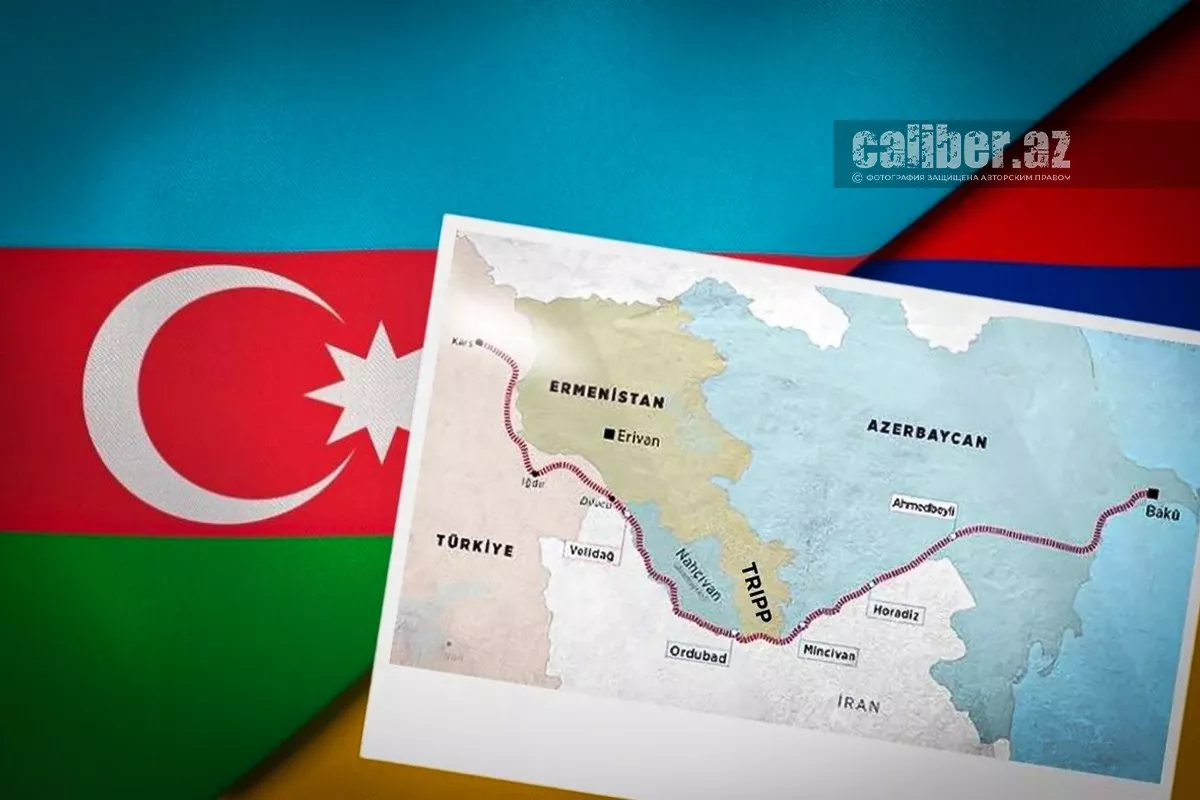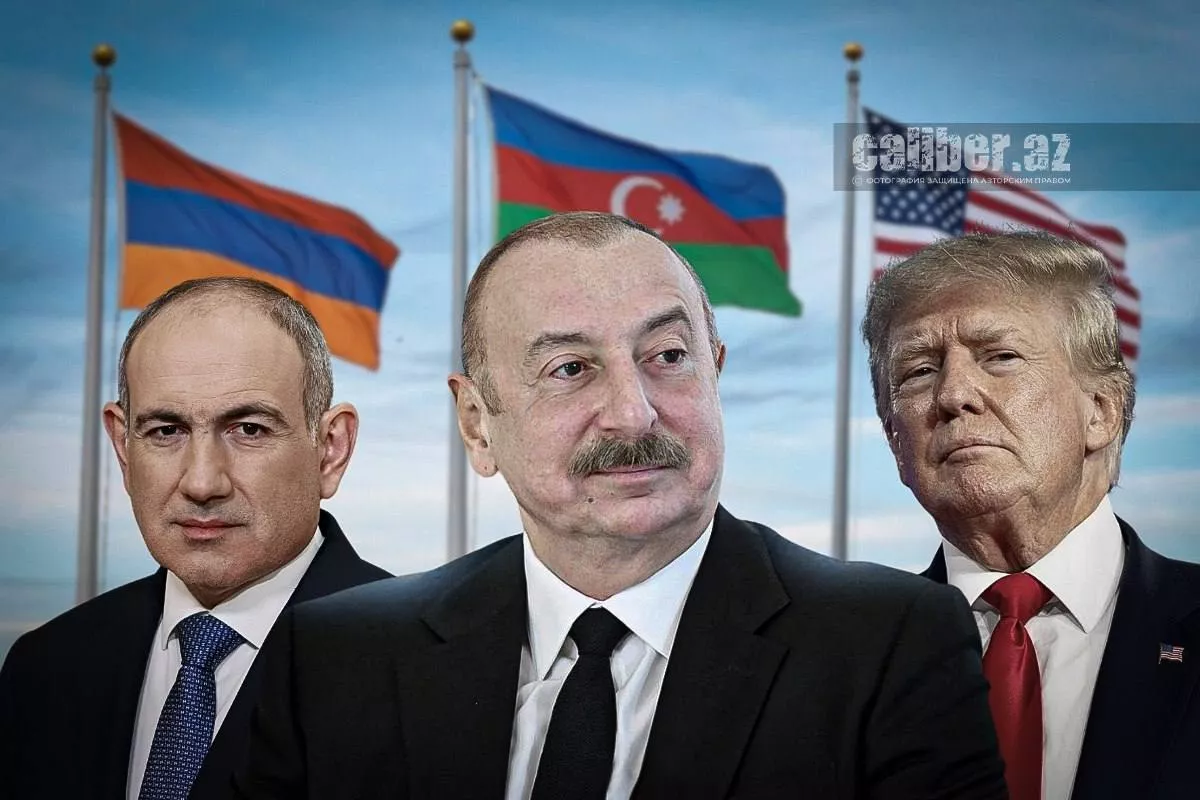Washington declarations and strategic transactionalism in South Caucasus Analysis by The National Interest
Washington-based The National Interest journal has published an analysis of the peace agreements reached between Azerbaijan and Armenia in the US earlier in August. Caliber.Az reprints some excerpts from the piece.
About the author: Damjan Krnjević Mišković is Professor of Practice at ADA University and Director for Policy Research, Analysis, and Publications at its Institute for Development and Diplomacy (IDD), where he serves as Co-Editor of Baku Dialogues. He also served as Editor of Horizons (2013-2020) and Managing Editor of The National Interest (2002-2004).
“Donald Trump’s recent achievements in the Middle East, which came about in no small measure thanks to the efforts of Egypt, Qatar, Türkiye, and several other states, should not overshadow his successful White House peace summit involving Armenia and Azerbaijan, held at the White House on August 8.
Trump and his counterparts from the South Caucasus, Ilham Aliyev and Nikol Pashinyan, each left the building with more than they arrived with; all advanced their countries’ national interests; all made commitments they can keep.

Trump succeeded where all previous US administrations and other outside players had failed. He and Steve Witkoff’s team designed the deal to effectively combine conflict resolution, peacemaking, transport and energy connectivity, commercial opportunities, and respect for everyone’s sovereignty.
The latter was the secret ingredient Trump’s diplomacy added—the piece that had always been missing in previous attempts by outsiders to broker peace between Armenia and Azerbaijan.
Thus, one of the underappreciated takeaways from the White House peace summit is that Trump has shown that he can respect smaller states that take their own sovereignty as seriously as he takes America’s.
For Aliyev and Pashinyan, as much as for Trump, borders are not mere lines on a map; they are sovereign markers of territorial integrity, statehood, and identity. This core belief aligns with the logic of America First: what happens beyond a country’s borders is less significant than what occurs within them.
This shared understanding of substantive sovereignty now binds Armenia, Azerbaijan, and the United States to one another as never before through a series of commitments and agreements. These will, if executed and followed up properly, recalibrate the strategic importance of the Middle Corridor in America’s favor, whilst giving all due consideration to the sovereign roles of South Caucasus and Central Asia states in getting various elements of this connectivity mega-project fully ready for primetime.
Critical to the route’s long-term viability will be its role as a “neutral passage open for all sorts of commerce,” as Nikolas Gvosdev [American pundit—ed.] characterized it. For this to work, no major power, Western or non-Western, may object to any company from any country using it.
Washington seems to be able to live with this, partly because the tangible American contribution to Armenia-Azerbaijan peace—the Trump Route for International Peace and Prosperity (TRIPP)—is not “a military or defense initiative,” which means the United States is not “providing a ‘hard security guarantee’ or deploying forces to the route,” according to a published report citing US officials.

In other words, there will be no US (or NATO) bases or garrisons popping up in Armenia, much less in Azerbaijan. Instead, US involvement will be purely commercial, with Washington taking on the responsibility to ensure TRIPP “operates safely for all parties” through agreements with “top-class operators,” according to the same sources.
A friend of mine involved in setting up the White House summit put it to me this way: “Think of our role as holding up the parasol and the umbrella, as needed, but we won’t be trying to change the weather.”
After initial rhetorical objections, neighboring Iran and Russia also appear to have come to terms with the emerging reality on the ground. This is partly because Armenia was able to provide credible assurances to its ally that TRIPP—whose infrastructure will be developed through what Trump said was an “exclusive partnership” with the United States—will operate according to Armenian law, as Pashinyan has made clear repeatedly. Azerbaijan also assuaged Iranian concerns and, more recently, repaired its relationship with Russia.
There is also Azerbaijan’s geoeconomic position: not only does it straddle both ends of TRIPP, but the country is the place where the Middle Corridor seamlessly blends into the China-led Belt and Road Initiative. Azerbaijan is also where that unsanctioned east-west route optimally intersects with the International North-South Transport Corridor, a strategic connectivity project established at the turn of the century by India, Iran, and Russia.
While Baku and Yerevan approached their embrace of Trump’s America from quite different national political contexts, their shared decision to seek peace at the White House reflects a broader international trend. The international community is pushing aside the vision of “open markets, international institutions, cooperative security, democratic community, progressive change, collective problem solving, shared sovereignty, [and] the rule of law.”
Together, these constituted the basic tenets of the “rules-based” liberal international order that emerged at the end of the Cold War. These are not being replaced by a different set of beliefs, however, but by a new foreign policy posture: strategic transactionalism.
Embraced not only by the United States, but also by scores of countries like Armenia and Azerbaijan, “the preferred mathematical operations [of this approach] are addition and multiplication, not subtraction and division. Extract more from more.”

Strategic transactionalism is also being embraced by most non-G7 members of the G20, the world’s keystone states, and a plethora of small and medium-sized countries. This translates into receptivity towards all outsiders, including Western powers, although it does not constitute a license for any outsider to interfere, reform, transform, or impose.
And it certainly does not mean accepting any claims of primacy, hegemony, or spheres of influence. Ultimately, this speaks to the restoration of sovereignty as a central operating principle of world order. For this, we can thank Donald Trump and like-minded national leaders around the world. It might even be worth a Nobel Peace Prize, at least next year," the author writes.








